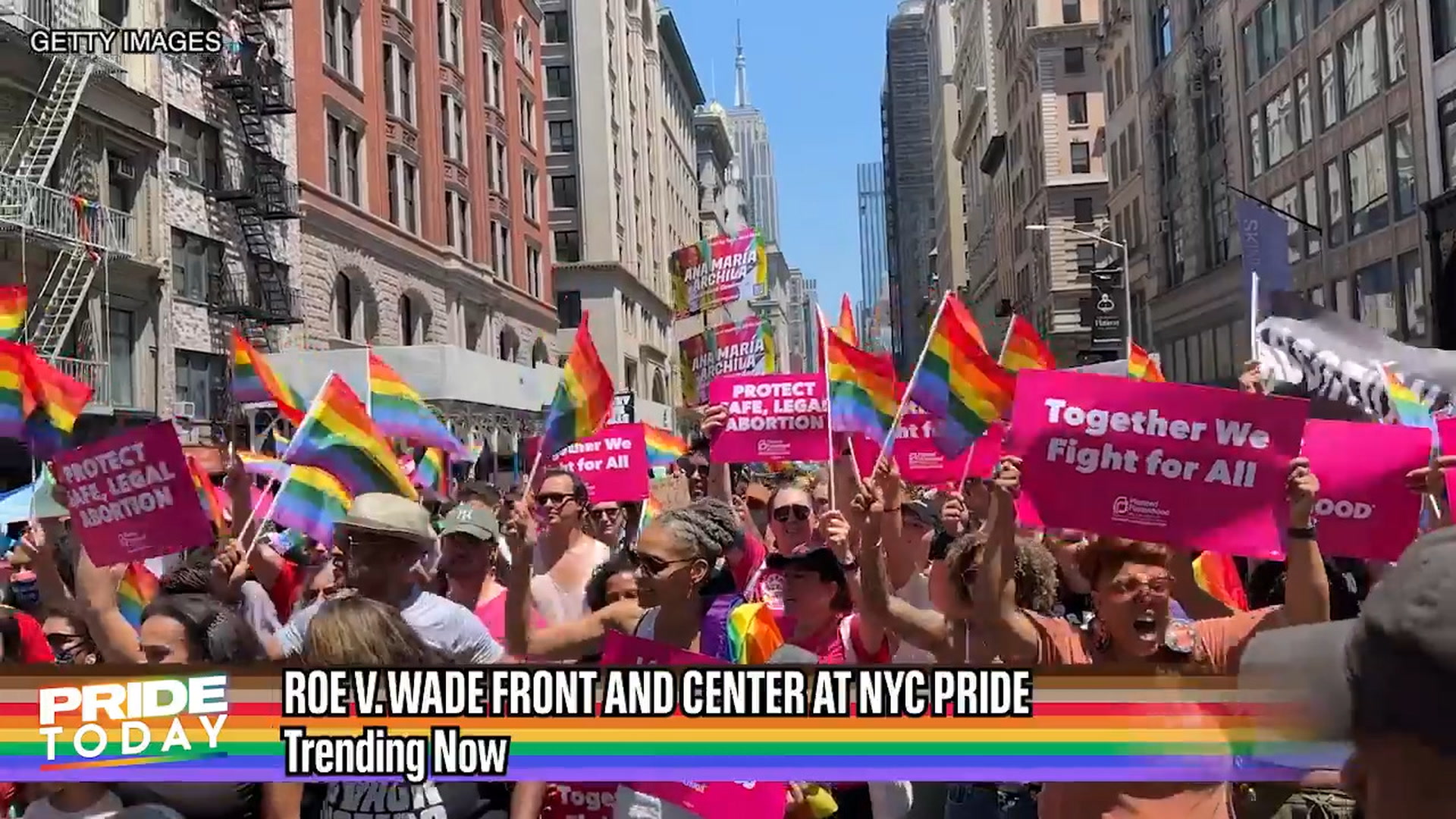Above: People pray on the steps of the Supreme Court as the case over school football coach Joseph Kennedy's public prayers is heard. Photo by Win McNamee/Getty Images
The ruling on abortion rights, which overturned Roe v. Wade, isn't the only concerning one to come out of the U.S. Supreme Court recently. Several decisions are undermining the separation of church and state, and that has grave implications for LGBTQ+ people.
The court ruled Monday that Joseph Kennedy, a public high school football coach in Bremerton, Wash., was within his rights to pray at the 50-yard line after his team's games, often with students joining him. He had lost his job for doing so.
Justice Neil Gorsuch, who wrote the 6-3 majority opinion, characterized Kennedy's prayers as a private, noncoercive activity. Kennedy "offered his prayers quietly while his students were otherwise occupied," Gorsuch wrote, adding, "Students were not required or expected to participate." Gorsuch, appointed by Donald Trump, was joined in his opinion by fellow Trump appointees Brett Kavanaugh and Amy Coney Barrett, along with the court's three other conservatives.
But Justice Sonia Sotomayor, in her dissent, said students could feel pressure to join. "Kennedy consistently invited others to join his prayers and for years led student-athletes in prayer," she wrote.
Since the 1960s, the court has held that organized, mandatory prayer in public schools is unconstitutional, as no governmental entity should be involved in promoting religion. But this and other recent rulings take a more expansive view of religion's role in government-sponsored events and programs.
Last week, the court ruled that public funds could go to religious schools under a tuition assistance program in Maine. In May, it sided with a Christian organization that sought to fly a flag bearing a cross at Boston's City Hall. In 2021, there was the ruling that a Catholic agency could keep its contract with the city of Philadelphia to provide foster care services even though the group discriminates against LGBTQ+ parents, in violation of city ordinance, but that decision was based primarily on an exemption in the Catholic agency's contract.
This weakening of church-state separation is worrisome, LGBTQ+ and inclusive civil rights groups point out.
"Coach Kennedy's assertion that his post-game prayers were private, and not coercive because players on his team were not required to join, ignores reality," said a statement from Jennifer C. Pizer, acting chief legal officer at Lambda Legal, which had filed a friend-of-the-court brief in the case. "There is hardly anything more public than kneeling and praying on the 50-yard line at the end of the game, nor more coercive than one's coach leading the prayer. The timing and location of this conspicuous religious conduct would lead any objective and reasonable observer to conclude that the school district supports this worship activity and these particular Christian beliefs at the expense of those who hold other religious beliefs or who identify as nonreligious."
"The future impact of this decision on LGBTQ students will be especially fraught," added Lambda Senior Counsel Greg Nevins. "For the court is forcing upon LGBTQ students -- especially those who may have had to grapple with religious disapproval of their identity while developing their own personal relationships with religion and spirituality -- an unconstitutional choice. They can conform to the religious practice of a public school authority figure who is the adult leader of their team or hold tightly to their own identities and values at the risk of marginalization. This is constitutionally wrong."
"The Task Force strongly disagrees with this decision, which the right-wing justices support with a cherry-picked version interpretation of history," Liz Seaton, policy director at the National LGBTQ Task Force, said of the Kennedy ruling. "Though nothing in the U.S. Constitution suggests this interpretation, their ruling appears to say that religious speech enjoys greater protection than other types of speech -- a clear erosion of our nation's church-state separation."
"Just last week, the court degraded the essential separation of church and state in another case where Maine tried to meet its mandate to provide every student with free access to public education by making funding available for secular private schools where no public high school existed," Seaton continued. The six right-wingers ruled, again as a bloc, to force states to fund religious schools when many openly discriminate against LGBTQ students and families. It is profoundly wrong for taxpayer money to be used to discriminate against us in any context, including paying private actors to discriminate against LGBTQ people. Furthermore, conservative justices outlined their intention to dismantle the right to privacy and marriage equality when the opportunity presents itself. Right-wing zealots are undoubtedly drafting legal challenges to further strip communities of hard-won rights."
The Kennedy ruling "aimed a wrecking ball at church-state separation," Elliot Mincberg wrote in a blog post for People for the American Way. "As Sotomayor concluded, the majority ruling improperly 'elevates one individual's interest in personal religious exercise' over 'society's interest in protecting the separation between church and state.' It endangers the rights of 'particularly vulnerable' public school students. And it 'sets us down a perilous path in forcing States to entangle themselves with religion, with all of our rights hanging in the balance.'"
"The longer term consequences of the right-wing majority's decision remain unclear," Mincberg added. "Because Gorsuch's opinion so plainly distorts the facts to portray Kennedy's coercive prayer as 'private' activity, it may leave the door open for rulings against more obviously coercive Establishment Clause violations. But it remains more likely that the ruling will further embolden far right efforts to promote particular religious views to public school students, perhaps even undermining established precedents that protect against teacher-led prayer in public school classrooms. The case presents yet another example of the harm to all of our rights that the Trump-manufactured Supreme Court majority causes to us all."
Follow More Advocate News on Pride Today Below





































































Charlie Kirk DID say stoning gay people was the 'perfect law' — and these other heinous quotes